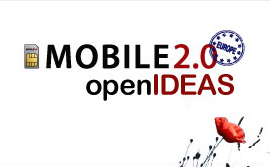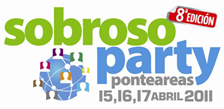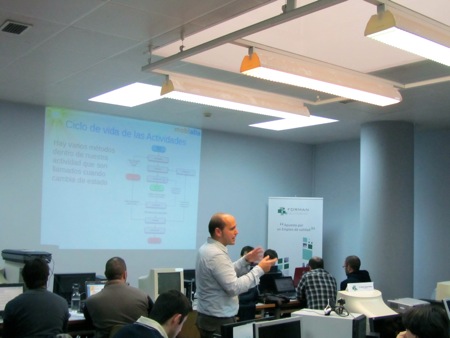Slot Racing 10th anniversary
This year marks the 10th anniversary of my Slot Racing Android game. I had initially begun working on a 2.0 version, but I couldn’t find the time. A few months ago, I decided to merge the changes back into the previous app and prepare the Slot Racing 10th Anniversary edition:
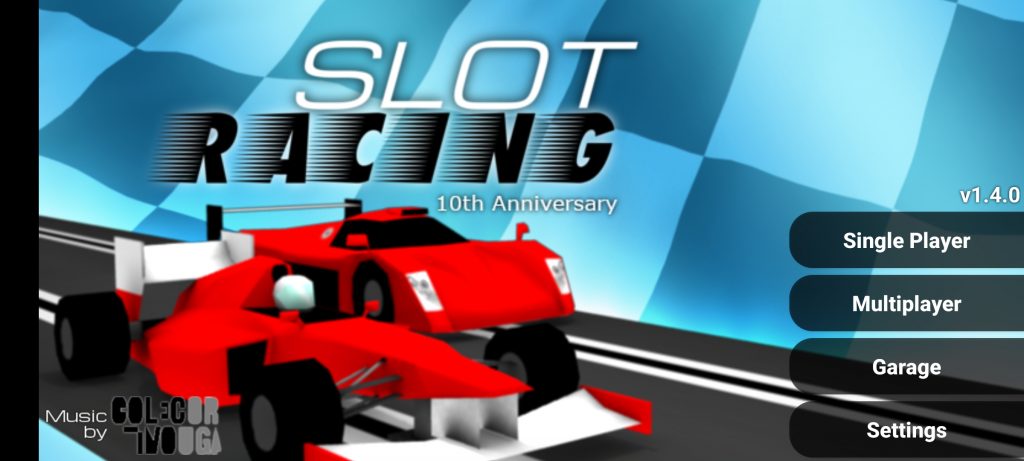
In this version, I’ve removed the no-longer-functional Facebook integration and replaced it with device IDs for the leaderboard. Users can now choose any username for the times they send from their device.
One significant improvement is not immediately visible. I’ve upgraded from an old JMini3d (OpenGL 1.1) to the latest version using OpenGL 2.0. This enables the use of bitmap fonts allowing races with more than 5 laps (the old version only had textures for numbers 1 to 5).
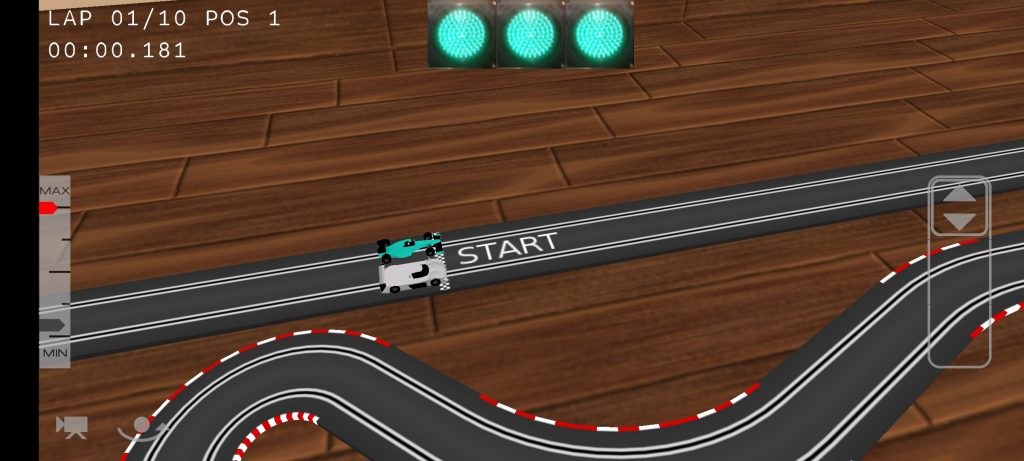
Over the last 10 years, I’ve learned a lot about development. The code looked horrible for today’s standards, so I did a major code refactor. It now supports various race types, adding races against the chronometer.
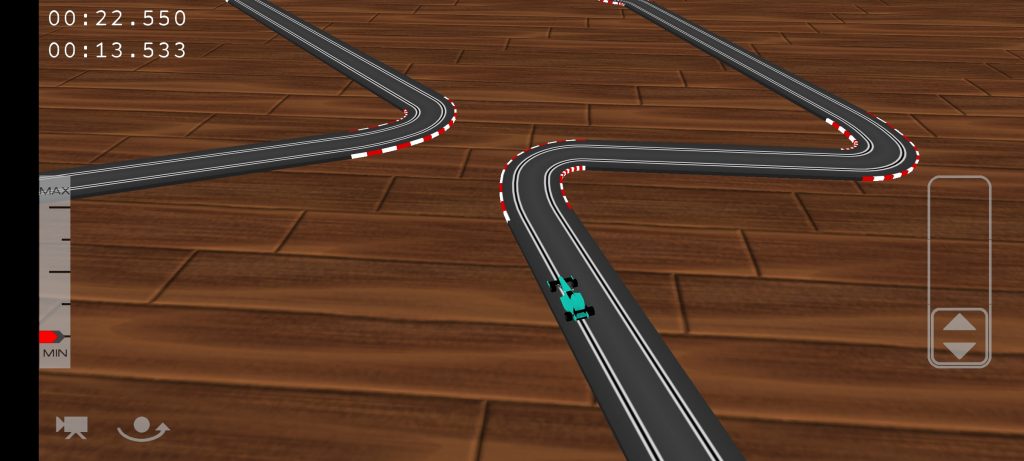
A minor physics adjustment has been made to prevent users from taking very tight turns at full throttle, which has rendered all previous leaderboard times invalid. Additionally, the leaderboards now differentiate between each lane and the number of laps completed.
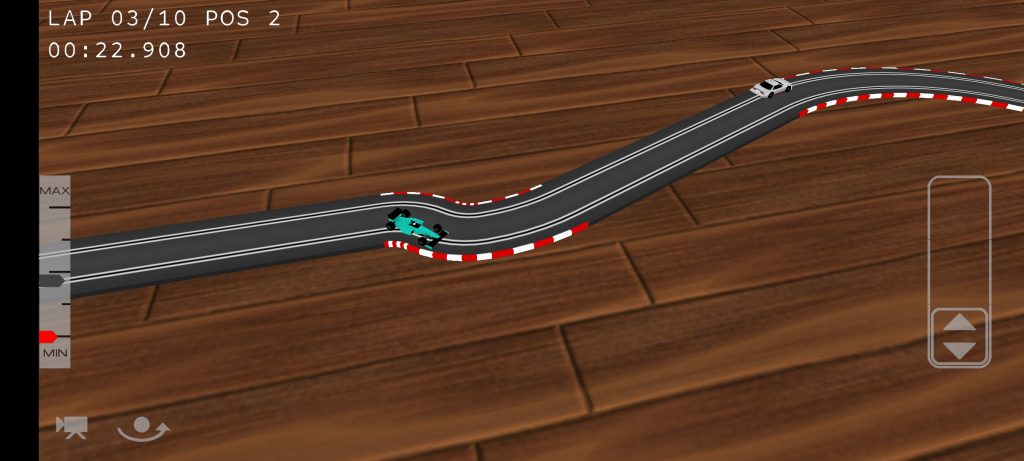
During last summer’s holidays, I added new circuits and seasons, including tracks from the current F1 season and Le Mans. Today, I’m applying the final touches to the Bluetooth code and I expect to release it soon.
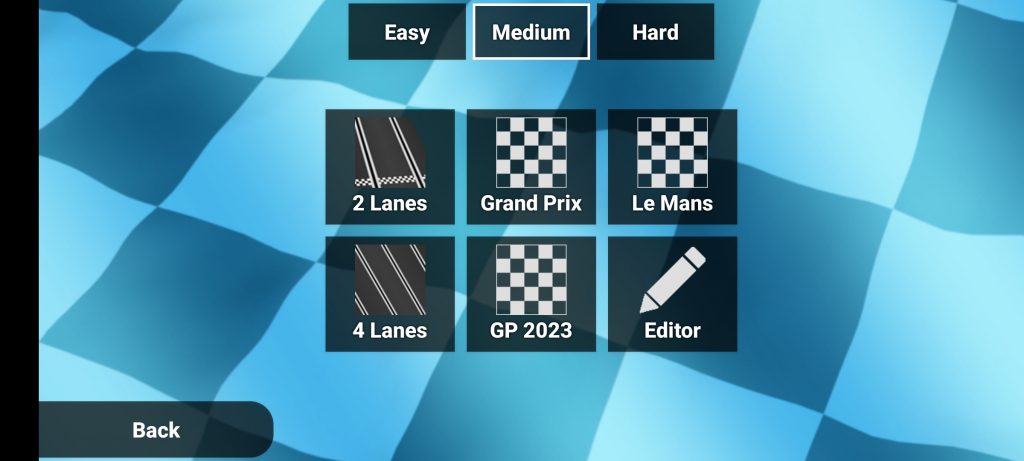
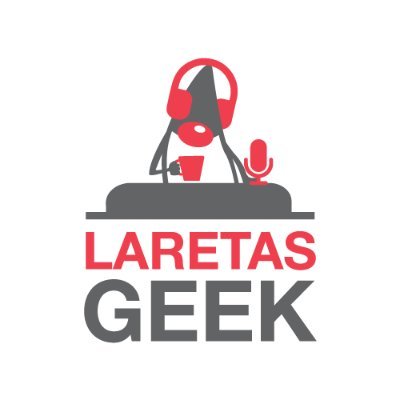
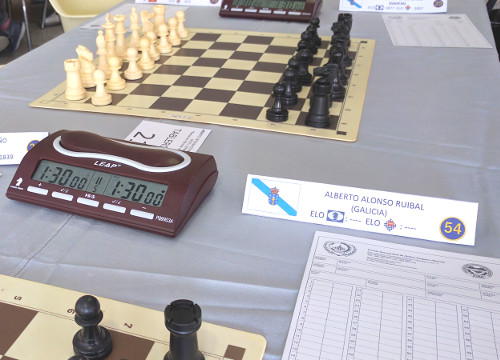




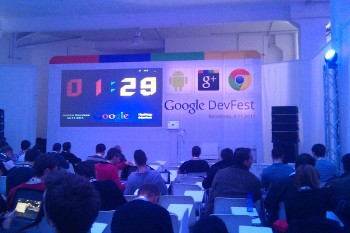 NEW IN HTML
NEW IN HTML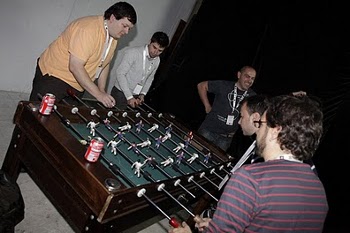 ANDROID SESSIONS
ANDROID SESSIONS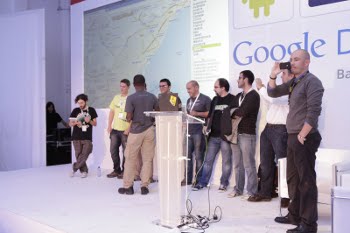 APP COMPETITION
APP COMPETITION